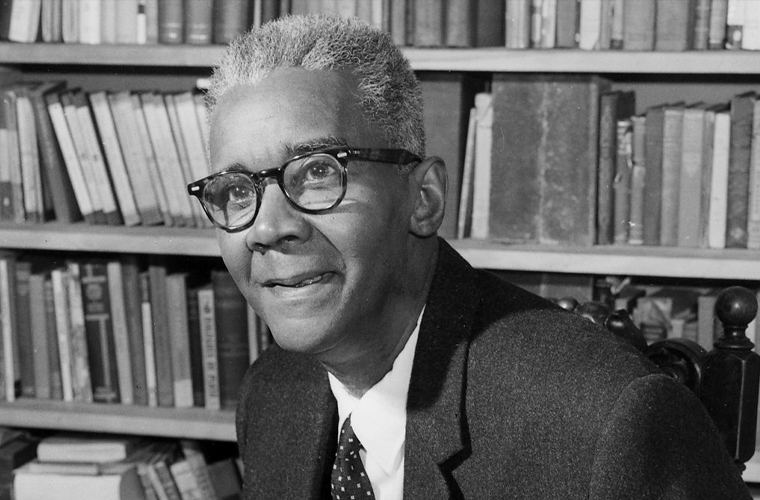Cyril Lionel Robert James, known as C. L. R. James, was born on January 4, 1901, in Tunapuna, Trinidad, then a British colony. Growing up in a middle-class family, James was the son of a schoolteacher and a domestic worker, which gave him access to education and literature early on. He excelled academically, attending Queen’s Royal College in Port of Spain, where he developed a love for literature, cricket, and intellectual debate. His early exposure to colonial education systems and the cultural dynamics of Trinidad shaped his critical perspective on imperialism and class.
In the 1920s, James worked as a schoolteacher in Trinidad while writing and engaging in local literary circles. His first major work, The Life of Captain Cipriani (1932), advocated for West Indian self-government, reflecting his growing anti-colonial stance. In 1932, he moved to England, settling in Nelson, Lancashire, where he lived with cricketer Learie Constantine. This period marked his immersion in socialist politics and literary production. In 1933, he published Minty Alley, a novel exploring the lives of working-class Trinidadians, drawing from his observations of social dynamics.
James’s time in England radicalized his political outlook. He joined the Trotskyist movement and became a leading voice in Marxist and anti-imperialist circles. His 1937 work, A History of Pan-African Revolt, traced the resistance of African and diasporic peoples against colonialism and slavery, establishing him as a key figure in Pan-Africanism. In 1938, he published The Black Jacobins, a seminal history of the Haitian Revolution and its leader, Toussaint Louverture. This book not only chronicled the only successful slave revolt in history but also analyzed the intersections of race, class, and revolutionary struggle, cementing James’s reputation as a historian and theorist.
A passionate cricketer and writer, James saw cricket as a lens for understanding Caribbean society and colonial power dynamics. His 1963 book, Beyond a Boundary, is a masterpiece blending autobiography, social history, and cultural criticism. Often described as one of the greatest books on sport, it explores how cricket reflected and challenged colonial hierarchies, while celebrating the game’s aesthetic and social significance in the West Indies.
James spent much of his life moving between England, the United States, and Trinidad, facing political persecution, including deportation from the U.S. in 1953 during the McCarthy era for his socialist activities. He returned to Trinidad in 1958, contributing to the independence movement, but fell out with political leaders and was expelled in 1965. He spent his later years in London, writing and mentoring younger activists until his death on May 31, 1989.
C. L. R. James left an indelible mark as a historian, political theorist, and cultural critic. His works on revolution, colonialism, and culture continue to inspire scholars and activists. The Black Jacobins remains a foundational text in postcolonial studies, while Beyond a Boundary is celebrated for its insights into sport and society. James’s commitment to socialism, Pan-Africanism, and the power of ordinary people to shape history endures as a testament to his revolutionary vision.

